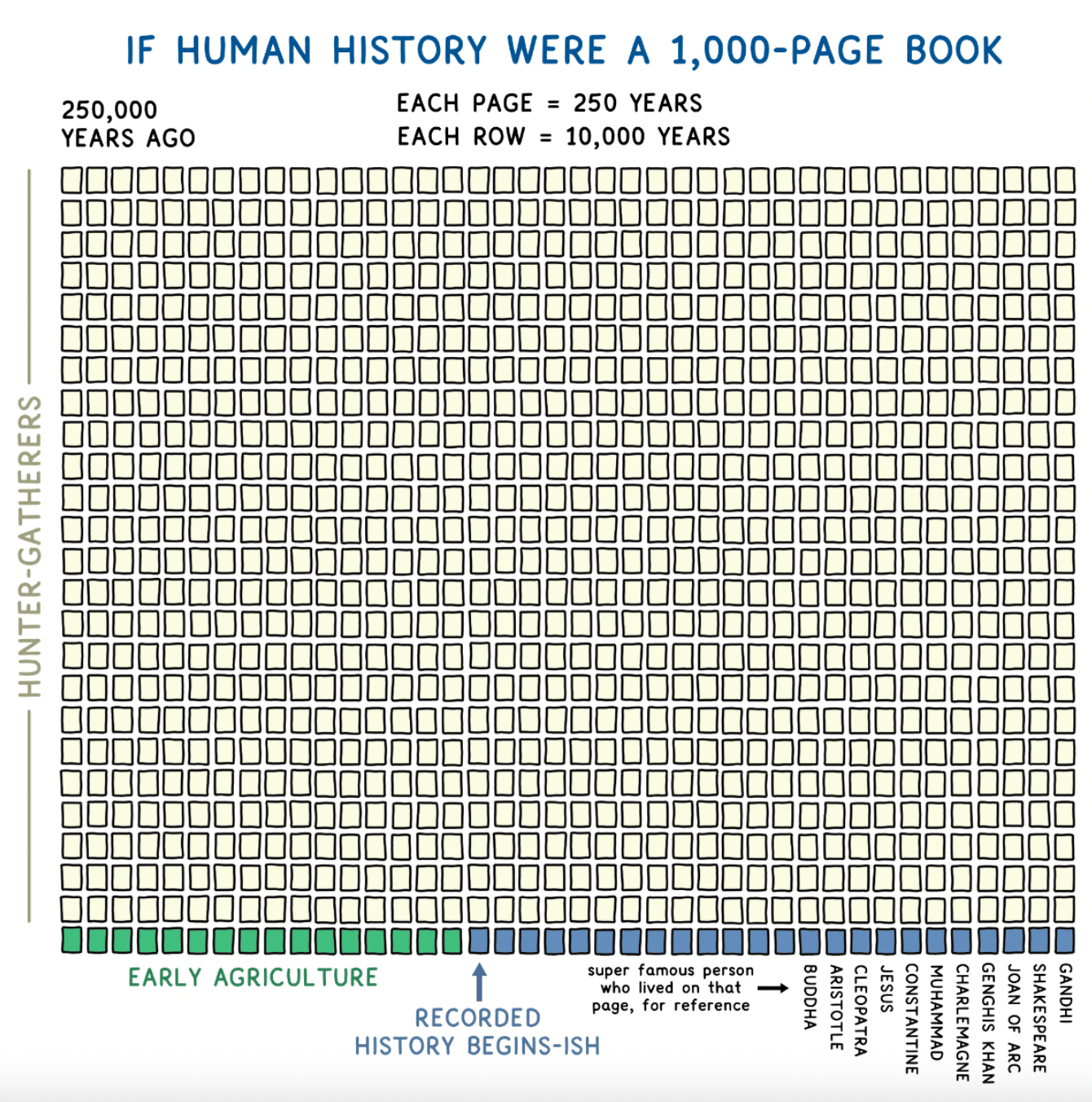On the Human Era
One of my favorite long-form blogs is Wait But Why, written by Tim Urban. He writes about topics ranging from procrastination to artificial intelligence and cryonics (all worth checking out). I've long admired his ability to simplify complex topics with clear language and quirky yet awesome illustrations.
Yesterday, he released his much-awaited first book, titled "What's Our Problem? a self-help book for societies," which immediately jumped to the top of my reading list. As I read through the book, I’ll cover some of the most interesting concepts and add my own commentary to them.
The book opens with a brief look at human history. Fossil and DNA evidence suggests that anatomically modern humans, or Homo Sapiens, evolved between 200,000 and 300,000 years ago. What we refer to as “ancient” history today is just a small fraction of that time. Take a minute to examine the below illustration—it’s both mind-blowing and enlightening.

This reminded me of a few related ideas and also raised some questions.
First, I feel incredibly fortunate to be alive today as opposed to any other point in our species' history. Despite our numerous challenges, we have access to technology that our ancestors would consider magical, and that the wealthiest among them could only dream of. We can fly almost anywhere on Earth by plane, communicate with anyone thousands of miles away by video, access the world's information at our fingertips, and benefit from life-saving vaccines and medications. Not to mention running water and hot showers, which many of us take for granted. None of this was an option just 300 years ago.
Second, we should consider replacing the Gregorian calendar with something more appropriate for year numbering. The first large-scale human construction appeared roughly 12,000 years ago, and the agricultural revolution began approximately 10,000 years ago. Written history is about 6,000 years old. Yet, we're stuck with the less universally relevant event of the birth of Jesus as the "start" of history. Some have suggested adding exactly 10,000 years to our current system to mark the start of the Holocene or Human Era. This would allow us to reframe how we think of ourselves and truly appreciate the exponential progress of the last few centuries.
Finally, this got me thinking of a few questions, which you might find interesting as well:
- If you were to pick different famous people from the ones Tim Urban picked in each of the 250-year blocks, who would you pick? (Your choices probably have some interesting clues about your worldview)
- Who might the most notable person of the next 250 years be? Instead of thinking of an actual person (chances are they are not yet alive), think about what that person does
- How does your life differ from what your grandparents may have experienced? What do you take for granted now that they never had?
- What do you think the world will look like in 10 years? How about 100 years?